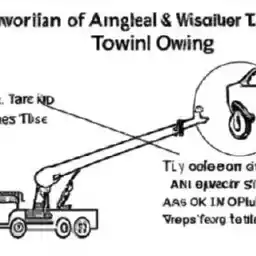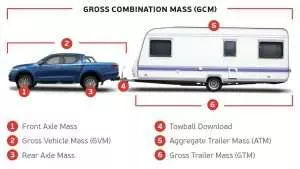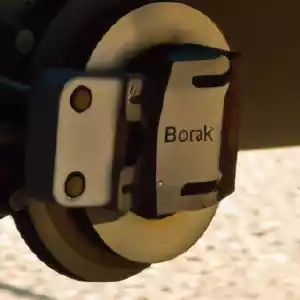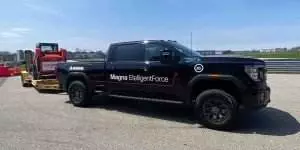Have you ever wondered what that big, loud vehicle is called that comes to the rescue when your car breaks down or gets stuck? Well, you’re in luck because we have the answer! A tow truck, also known as a wrecker or recovery vehicle, is a specialized truck that is designed and used for towing and transporting vehicles that are unable to move on their own. From small cars to large trucks and even motorcycles, tow trucks can handle a wide range of vehicles and help get them to a repair shop or a safe location.
Now, let’s dive into the details. Tow trucks typically have a flatbed or a towing arm that is used to lift and transport vehicles. The flatbed is like a big metal platform on the back of the truck that can be tilted or lowered to accommodate different types of vehicles. This allows the tow truck to easily load and unload cars, SUVs, and motorcycles. On the other hand, the towing arm, also known as a boom or a wrecker, is a long extension attached to the back of the truck that can be rotated and lifted to raise the front or rear end of a vehicle off the ground for towing.
In addition to the main towing equipment, tow trucks are often equipped with a variety of tools and accessories to assist in the towing process. This includes heavy-duty winches, which are used to pull vehicles onto the flatbed or lift them with the towing arm. Tow trucks also have chains, straps, and hooks to secure the vehicles during transportation. Some tow trucks even have special attachments for towing large trucks, buses, or other heavy-duty vehicles.
So, next time you see a tow truck coming to the rescue, you’ll have a better understanding of what it’s called and how it works. Stay tuned for our next article where we’ll delve even deeper into the fascinating world of tow trucks!
Definition of a Tow Truck
A tow truck, also known as a wrecker, breakdown truck, recovery vehicle, or breakdown lorry, is a specialized vehicle designed to transport disabled or illegally parked motor vehicles to a designated location.
The Purpose and Function of a Tow Truck
The primary purpose of a tow truck is to provide roadside assistance by towing vehicles that have broken down, been involved in accidents, or are otherwise incapacitated. Tow trucks play a crucial role in ensuring the safety and smooth flow of traffic on roads by removing vehicles that are obstructing the way.
Different Types of Tow Trucks
There are several different types of tow trucks, each with its own specific functions and capabilities. The most common types include:
- Flatbed Tow Trucks: These trucks have a flat, open bed at the rear that can be hydraulically inclined and lowered to facilitate loading and unloading of vehicles. Flatbed tow trucks are ideal for transporting luxury or vintage vehicles, as they provide a more stable and secure transport option.
- Wheel-Lift Tow Trucks: Wheel-lift tow trucks, also known as hook-and-chain tow trucks, use a metal yoke or sling to lift the front or back end of a vehicle off the ground. They are commonly used for towing vehicles that are illegally parked or have minor mechanical issues.
- Integrated Tow Trucks: Integrated tow trucks have both a boom and a wheel-lift mechanism, offering versatile towing options for a wide range of vehicles. These trucks are equipped with hydraulics that allow for efficient and safe loading and unloading of vehicles.
- Heavy-Duty Tow Trucks: Heavy-duty tow trucks are designed to tow large vehicles such as buses, tractor-trailers, and RVs. These trucks are equipped with powerful engines, robust winches, and sturdy frames to handle the weight and size of heavy vehicles.
Common Terminology
The term “tow truck” is the most common name used to refer to these vehicles, but different regions and industries may use various alternative names for tow trucks. For example, in the United Kingdom, tow trucks are often referred to as recovery vehicles or breakdown lorries. In some cases, the specific function of a tow truck may influence its name, such as a “roll-back” for a flatbed tow truck.
Regional Differences in Terminology
The terminology used for tow trucks can vary from one region to another. In North America, the term “wrecker” is commonly used to refer to a tow truck, while in Australia, a tow truck is typically called a “towie.” These variations in terminology reflect the local slang and cultural influences in different parts of the world.
Slang Terms Associated with Tow Trucks
Tow trucks, due to their ubiquitous presence on roads, have also given rise to several slang terms. For example, “hooker” or “tow trucker” is a colloquial term used to describe someone who operates a tow truck. Additionally, tow trucks are sometimes playfully referred to as “wreckers” or ” tow monkeys” within the industry.
Origin and Evolution
The concept of towing vehicles can be traced back to the early 20th century when the first tow trucks were developed. Before the introduction of tow trucks, disabled vehicles had to be manually pulled or pushed to a repair facility, which was both time-consuming and physically demanding. The invention of the tow truck revolutionized the automotive industry by providing a more efficient and convenient method for transporting disabled vehicles.
Historical Background of Tow Trucks
The earliest recorded tow truck was invented by Ernest Holmes Sr. in 1916. Holmes, a mechanic from Chattanooga, Tennessee, developed a device that used chains, pulleys, and a winch to lift and transport disabled vehicles. This invention, known as the “Holmes 485,” became the prototype for modern tow trucks.
Innovations and Advancements in Tow Truck Technology
Over the years, tow truck technology has evolved significantly, integrating various advancements to improve efficiency, safety, and ease of operation. Hydraulic systems were introduced to replace manual winches, making it easier to load and unload vehicles. The development of flatbed tow trucks with hydraulic tilting beds allowed for more secure transportation of vehicles, reducing the risk of damage or accidents during transport.
Impact of Tow Trucks on the Automotive Industry
The invention and continuous refinement of tow trucks have had a profound impact on the automotive industry. The availability of roadside assistance provided by tow trucks has given motorists a sense of security and peace of mind, as they know that help is just a phone call away. Additionally, the introduction of specialized tow trucks has enabled the safe transportation of a wide variety of vehicles, including luxury cars, motorcycles, and heavy-duty vehicles.
Working Mechanism
Tow trucks incorporate various components and features that enable them to perform their towing functions efficiently. Understanding the working mechanism of a tow truck is crucial for tow truck operators to ensure the safe and effective operation of their vehicles.
Components and Features of a Tow Truck
A typical tow truck consists of the following components and features:
- Boom or Tow Arm: The boom is a long, extendable arm that supports the weight of the towed vehicle. It can be hydraulically adjusted to lift and transport vehicles of different sizes.
- Winch: A winch is a mechanical device fitted to the boom that uses a cable or rope to pull the disabled vehicle onto the tow truck. The winch is operated using a control panel within the tow truck’s cabin.
- Bed or Deck: The bed or deck of a tow truck is the area where the disabled vehicle is placed for transport. Depending on the type of tow truck, the bed may be an open flatbed or enclosed container.
- Wheel Lift: Some tow trucks are equipped with a wheel lift mechanism that can lift the front or back end of the vehicle off the ground. This feature is especially useful for towing vehicles with flat tires or those that cannot be driven.
- Controls and Hydraulics: Tow trucks are equipped with various controls and hydraulic systems that allow for precise movement and adjustment of the boom, winch, and wheel lift. These controls are typically located within the cabin for easy access by the operator.
How a Tow Truck Operates
When a tow truck arrives at the scene, the operator assesses the situation to determine the most appropriate method for towing the disabled vehicle. Depending on the type of tow truck and the condition of the vehicle, the operator can choose to use either the boom, wheel lift, or a combination of both.
In the case of a wheel lift tow truck, the operator positions the wheel lift mechanism under the front or back end of the disabled vehicle. The wheels are secured using straps or chains to prevent them from moving during transport. Once the vehicle is secure, the wheel lift is raised, lifting the front or back end of the vehicle off the ground. The operator can then drive the tow truck with the disabled vehicle in tow to the designated location.
For flatbed tow trucks, the operator lowers the inclined bed to the ground, allowing the disabled vehicle to be driven or winched onto the flatbed. Once the vehicle is positioned securely on the bed, the operator raises the bed to a horizontal position and secures the vehicle using straps or chains. The flatbed tow truck can then transport the disabled vehicle to the desired destination.
Safety Considerations and Regulations
Operating a tow truck requires adherence to various safety considerations and regulations to ensure the safety of both the tow truck operator and other road users. Tow truck operators must be trained in the proper use of equipment and follow industry best practices to prevent accidents and injuries.
Additionally, tow truck operators must comply with local regulations and laws regarding licensing, insurance, and vehicle weight restrictions. It is essential for tow truck operators to stay updated on changes in regulations and participate in continuing education and skill development programs to enhance their knowledge and proficiency.
Towing Services
Tow trucks provide a range of towing services to assist motorists in different situations. Whether it is a minor breakdown or a major accident, tow truck operators are equipped to handle a variety of scenarios.
Types of Vehicles Towed by Tow Trucks
Tow trucks are capable of towing a wide range of vehicles, including:
- Passenger Cars: Tow trucks are frequently used to tow passenger cars that have suffered mechanical failure or have been involved in accidents. These vehicles can be easily transported using various towing methods, including wheel lifts or flatbeds.
- Motorcycles: Tow trucks equipped with motorcycle trailers or specialized motorcycle lifts can safely transport motorcycles to repair facilities or storage locations. The motorcycle is secured using straps or wheel chocks to prevent movement during transport.
- Heavy-Duty Vehicles: Heavy-duty tow trucks are specifically designed to tow large vehicles, such as buses, tractor-trailers, or RVs. These vehicles often require specialized equipment and techniques to ensure their safe transportation.
Specialized Towing Services and Equipment
In addition to the general towing services provided by tow trucks, there are specialized towing services and equipment available to address specific needs. Some examples include:
- Motorcycle towing: Tow trucks equipped with motorcycle trailers or motorcycle lifts are used to transport motorcycles safely and securely.
- Off-road recovery: Off-road recovery tow trucks are used to extract vehicles that have become stuck or stranded in remote or challenging terrains.
- Boat towing: Tow trucks equipped with specialized trailers or extendable booms are used to transport boats and watercraft.
- Long-distance towing: Some tow trucks are equipped with extra fuel capacity or additional features to facilitate long-distance towing of vehicles.
Challenges and Limitations Faced by Tow Truck Operators
Tow truck operators face various challenges and limitations in their line of work. They often operate in hazardous conditions, such as busy highways or adverse weather conditions, which require them to exercise caution and adhere to safety protocols at all times.
Moreover, dealing with distressed motorists or working with damaged vehicles can be emotionally and physically demanding for tow truck operators. Additionally, the weight and size of some vehicles may pose challenges during towing, requiring specialized equipment and techniques.
Tow Truck Industry
The tow truck industry plays a significant role in providing essential services to motorists and contributing to the overall functioning of the automotive and transportation sectors.
Size and Scope of the Tow Truck Industry
The size and scope of the tow truck industry vary from region to region, with larger urban areas typically having a higher demand for towing services. The industry encompasses various businesses, ranging from small, family-owned operations to large-scale towing companies.
Major Players and Market Trends
The tow truck industry is highly competitive, with numerous players providing towing services. Major companies may have a fleet of tow trucks equipped to handle a wide range of towing needs, while smaller operators may specialize in specific services or cater to a specific geographic area.
In recent years, there has been a trend towards the use of technology in the tow truck industry. Many towing companies now utilize GPS tracking systems to efficiently dispatch tow trucks and improve response times. Additionally, the emergence of mobile applications has made it easier for motorists to request towing services directly from their smartphones.
Economic Impact and Employment Opportunities
The tow truck industry contributes significantly to the economy by providing employment opportunities and generating revenue. The industry employs tow truck operators, mechanics, dispatchers, and administrative staff. Additionally, the purchase and maintenance of tow trucks create business opportunities for manufacturers, suppliers, and service providers.
Training and Certification
Becoming a tow truck operator requires specific training and certification to ensure the safe and effective operation of the vehicle and the well-being of both the operator and the general public.
Requirements for Becoming a Tow Truck Operator
The specific requirements for becoming a tow truck operator may vary depending on local regulations. However, common requirements include:
- Valid Driver’s License: Tow truck operators must possess a valid driver’s license to operate the vehicle legally.
- Physical Fitness: The job of a tow truck operator can be physically demanding. Operators must be in good physical condition and capable of performing tasks such as lifting heavy objects or operating equipment.
- Clean Driving Record: Tow truck operators are typically required to have a clean driving record, as they may be responsible for the safe transport of other people’s vehicles.
Certification Programs and Licensing
To enhance professionalism and ensure the safe operation of tow trucks, certification programs and licensing are available for tow truck operators. These programs typically cover topics such as towing and recovery techniques, vehicle safety, and customer service.
Licensing requirements for tow truck operators may include passing a written examination and demonstrating proficiency in operating a tow truck. Additionally, operators may need to obtain certification in specific areas, such as motorcycle towing or heavy-duty towing, to cater to specialized towing needs.
Continuing Education and Skill Development
Continuing education and skill development are crucial for tow truck operators to stay updated on the latest industry trends, regulations, and best practices. Tow truck operators can participate in training programs, workshops, and seminars to enhance their knowledge and skills in areas such as vehicle recovery techniques, customer service, and industry-specific technologies.
Legal and Ethical Considerations
The operation of tow trucks is governed by various laws and regulations to ensure the protection of the rights and safety of motorists. Additionally, ethical considerations and practices are essential for maintaining the reputation and integrity of the tow truck industry.
Laws and Regulations Governing Tow Truck Operations
The laws and regulations governing tow truck operations typically include:
- Licensing and Permitting: Tow truck operators must comply with local licensing and permitting requirements to legally operate their vehicles. This includes obtaining the necessary licenses and permits and adhering to any vehicle weight restrictions.
- Towing Fees and Practices: Laws often regulate the fees that tow truck operators can charge for their services. These laws aim to protect consumers from excessive or unethical charges. Additionally, regulations may dictate specific practices, such as providing an itemized bill or offering payment options.
- Vehicle Storage: Laws may govern the storage of vehicles at tow truck facilities, including the length of time a vehicle can be held before it must be released or sold.
Ethical Practices in the Industry
Ethical practices are crucial in maintaining consumer trust and industry integrity. Tow truck operators should conduct business with honesty, professionalism, and respect for the rights and property of motorists.
Ethical considerations in the industry include:
- Transparency and Communication: Tow truck operators should provide clear and accurate information to motorists regarding towing fees, estimated arrival times, and any additional charges or services.
- Respect for Property: Tow truck operators should handle vehicles with care and take necessary precautions to prevent damage during towing and transport.
- Confidentiality: Operators should respect the privacy of motorists and not disclose personal or sensitive information obtained during the course of their work.
Consumer Rights and Protection
Consumers have rights and protections when dealing with tow truck services. These rights may vary depending on local regulations but often include:
- Written Estimates: Tow truck operators should provide a written estimate of the towing fees before commencing any work.
- Itemized Invoices: Consumers are entitled to receive an itemized invoice detailing the breakdown of charges and services provided.
- Complaint Resolution: Consumers should have access to a process for filing complaints or seeking redress if they believe they have been treated unfairly by a tow truck operator.
The Role of Tow Trucks in Society
Tow trucks play a crucial role in society by providing essential services that contribute to road safety, traffic management, and community support.
Importance of Tow Trucks in Emergency Situations
During emergencies, such as accidents or breakdowns, tow trucks provide a lifeline to stranded motorists. They ensure that disabled vehicles are promptly removed from the road, minimizing the risk of further accidents and reducing traffic congestion.
Contributions to Road Safety and Traffic Management
Tow trucks contribute to road safety by promptly removing abandoned or illegally parked vehicles, minimizing hazards and obstructions on the road. The efficient and timely removal of disabled vehicles also helps to alleviate traffic congestion and maintain the flow of traffic.
Community Involvement and Support
The tow truck industry often supports local communities by providing sponsorship for events and initiatives and participating in community outreach programs. Tow truck operators are often involved in public education campaigns on road safety or assist in community events by providing towing services or engaging in charitable activities.
Conclusion
In conclusion, tow trucks, also known as wreckers, breakdown trucks, or recovery vehicles, play a crucial role in ensuring the safety, efficiency, and convenience of our roads. These specialized vehicles transport disabled or illegally parked vehicles to designated locations, providing roadside assistance and contributing to road safety. Tow trucks have evolved over the years, incorporating various technological advancements to improve efficiency, safety, and versatility. The tow truck industry provides employment opportunities, contributes to the economy, and adheres to legal and ethical practices to serve motorists effectively. Understanding the functions and significance of tow trucks is vital for both motorists and tow truck operators to foster a safer and more efficient road environment.



